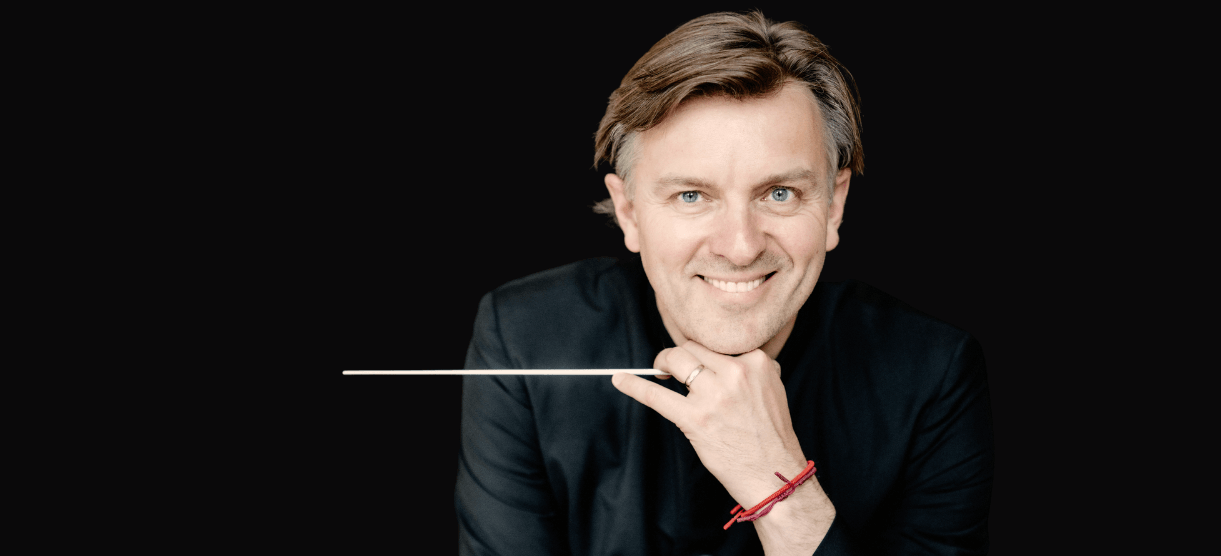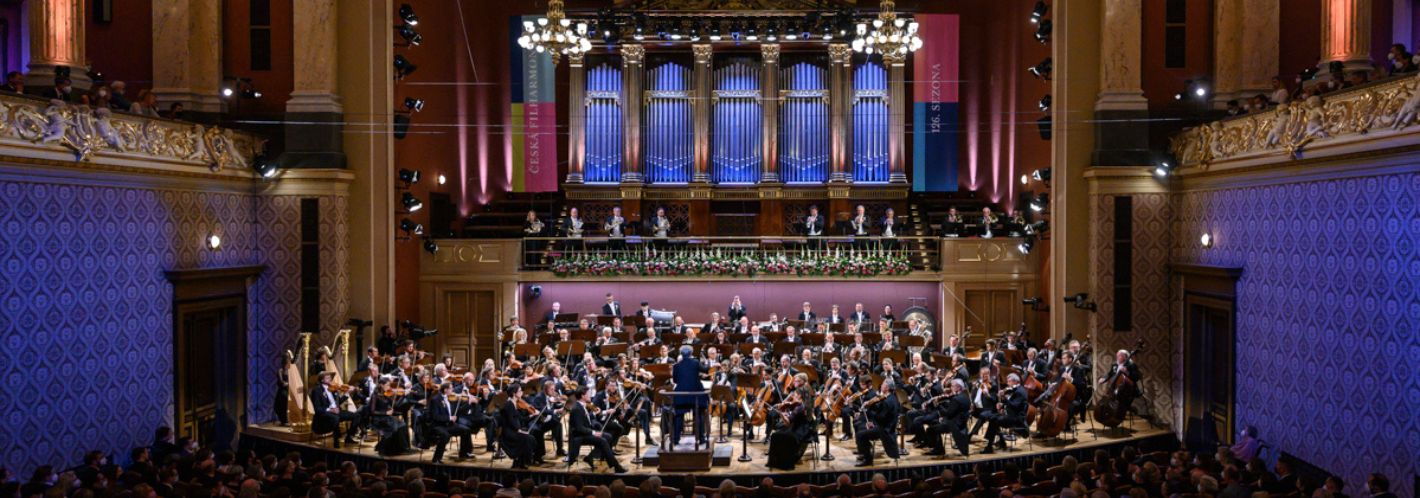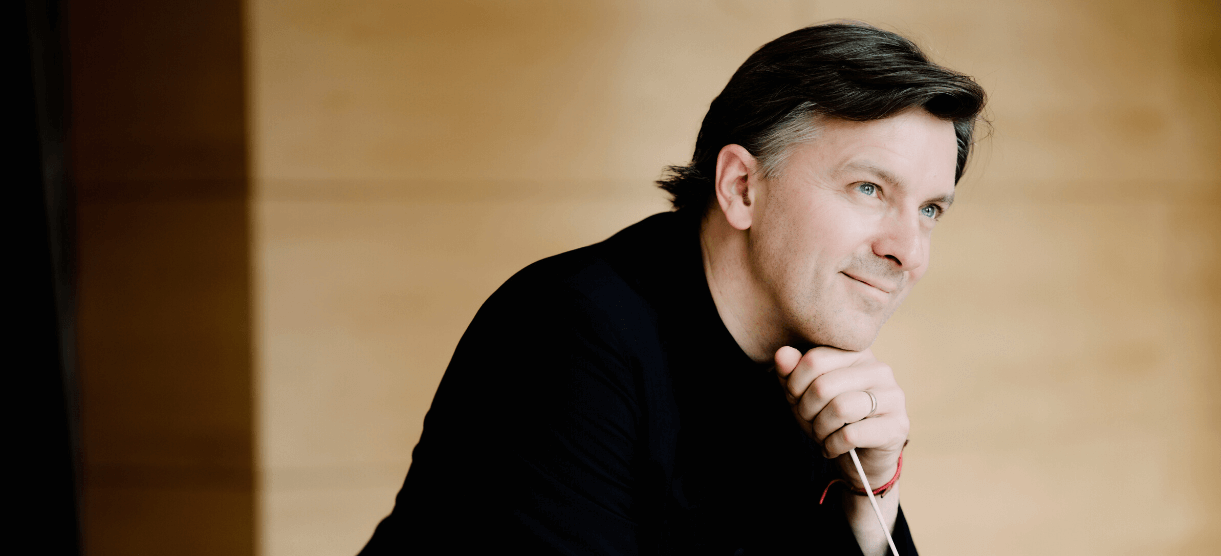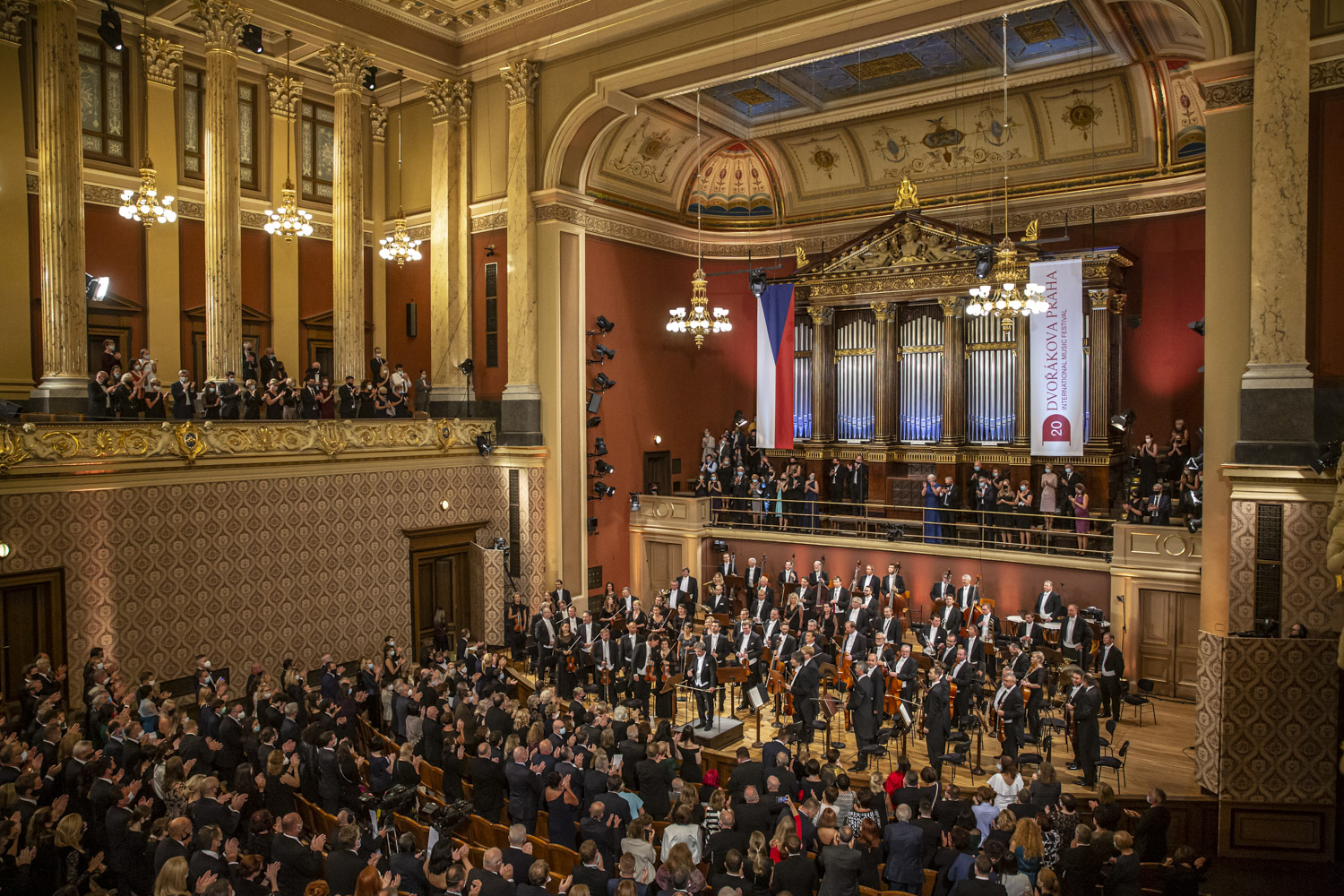
Sergei Rachmaninoff: Piano Concerto No. 3 in D Minor, Op. 30
Aaron Copland: Symphony No. 3
Russia and the USA are huge countries that are both widely geographically and politically separated, yet one single man brings their cultures together. Antonín Dvořák was able to exhibit a Slavic tendency towards Russian sources of inspiration while also absorbing and influencing America’s musical life. Similarly, Sergei Rachmaninoff and Aaron Copland encounter each other on the same programme. The former composer’s great Romantic passion is recast in his Piano Concerto No. 3 in D minor. The latter’s Symphony No. 3 helped define the typical sound of American music. Representing the spirit of Dvořák is the Czech Philharmonic, which still proudly claims the legacy of its first conductor. Israeli pianist Boris Giltburg thrilled the Dvořák Prague Festival public in 2019, when he played 13 Rachmaninoff preludes alongside Liszt’s complete Transcendental Etudes. Giltburg’s performance of Rachmaninoff’s concerto promises to be a fantastic experience, and the Czech Philharmonic will give noble expression to the atmosphere of the sonic image of the endless American plains. All of this will be heard under the baton of the orchestra’s principal guest conductor, Tomáš Netopil.
Gramophone’s 2024 ‘Orchestra of the Year’, the Czech Philharmonic gave its first concert – an all-Dvořák programme conducted by the composer himself – in the famed Rudolfinum Hall on 4 January 1896. The Orchestra is acknowledged for its definitive interpretations of Czech composers and recognised for its special relationship with the music of Brahms, Tchaikovsky, and Mahler, who conducted the world première of his Symphony No. 7 with the Orchestra in 1908. It is currently recording the complete cycle of Mahler symphonies with Chief Conductor and Music Director Semyon Bychkov for Pentatone.
The Czech Philharmonic’s extraordinary and proud history reflects both its location at the very heart of Europe and the Czech Republic’s turbulent political history, for which Smetana’s Má vlast has become a potent symbol. 2024 was the Year of Czech Music, a major celebration launched on the bicentenary of Smetana’s birth and held across the Czech Republic every ten years. The Czech Philharmonic marked Smetana’s bicentenary with a series of concerts at the Smetana Litomyšl Festival, including a rare concert performance of his opera Libuše, conducted by Principal Guest Conductor Jakub Hrůša.
The contribution of the Czech Philharmonic and Semyon Bychkov to the Year of Czech Music was the Dvořák Festival, a combined performance of three overtures, instrumental concerts, and the last three symphonies of Antonín Dvořák, both in Prague and on tour in South Korea, Japan, Spain, Austria, Germany, Belgium, and France. The highlight of the Year of Czech Music performed by Semyon Bychkov and the Czech Philharmonic was a series of three concerts in New York's Carnegie Hall.
Alongside the Czech Philharmonic’s Youth Orchestra, Orchestral Academy, and Jiří Bělohlávek Prize for young musicians, a comprehensive education strategy engages with more than 400 schools, bringing students of all ages to the Rudolfinum – some travelling as long as four hours – to hear concerts and participate in workshops. An inspirational music and song programme led by singer Ida Kelarová for the extensive Romani communities within the Czech Republic and Slovakia has helped many socially excluded families to find a voice.
An early champion of the music of Martinů and Janáček, the works of Czech composers – both established and new – remain the lifeblood of the Orchestra. Instigated by Semyon Bychkov at the start of his tenure, nine Czech composers and five international composers – Detlev Glanert, Julian Anderson, Thomas Larcher, Bryce Dessner, and Thierry Escaich – were commissioned to write for the Orchestra.
source: Česká filharmonie

Conductor Tomáš Netopil, known around the world as one of the most talented Czech conductors, is now in his tenth (and final) year as the general music director of the Aalto Musiktheater and the Philharmonie Essen. This season, awaiting him on his home stage will be premieres of Wagner’s Tannhäuser, Kampe’s Dogville, and Mozart’s Marriage of Figaro. He will also be conducting a new production of Janáček’s Káťa Kabanová at the Grand Théâtre de Genève. As the Czech Philharmonic’s principal guest conductor, he will lead concerts at Prague’s Rudofinum and also at the Smetana Litomyšl and Janáček May festivals, of which he is the president. Other highlights from this season include concerts with the Orchestre de la Suisse Romande, the Yomiuri Nippon Symphony Orchestra, the Orchestre National de Montpellier, and the opening concert of the festival Concentus Moraviae, where he will be at the helm of the legendary Concentus Musicus Wien.
He is the artistic director at the successful international Summer Music Academy in Kroměříž, which he founded in 2018. Tomáš Netopil also has strong ties to the Dvořák Prague Festival: he was its artist-in-residence for the 2017 season, and in 2020 and 2021, the Dvořák Prague Youth Philharmonic appeared at the festival under his baton in cooperation with his Kroměříž academy.
In addition to productions at the Aalto Musiktheater in Essen, Tomáš Netopil has led many important opera performances at the Saxon State Opera in Dresden (La clemenza di Tito, Rusalka, The Bartered Bride, The Cunning Little Vixen, Halévy’s La Juive, and Busoni’s Doktor Faust), the Vienna State Opera (Idomeneo, Die Freischütz, Leonore), the Dutch National Opera (Jenůfa), and the Grand Théâtre de Genève (The Makropulos Affair).
Tomáš Netopil has appeared on concert stages with many renowned orchestras. Besides the Essen and the Czech Philharmonic, these include the Orchestre National de France, the Vienna Symphony Orchestra, the Orchestre Philharmonique de Monte Carlo, the BBC Symphony Orchestra, Sinfonia Varsovia, Zurich’s Tonhalle-Orchester, the Orchestre de Paris, the London Philharmonic Orchestra, the Netherlands Radio Philharmonic, the RAI National Symphony Orchestra in Torino, and the Prague Symphony Orchestra.
Tomáš Netopil studied violin at the P. J. Vejvanovský Conservatoire in Kroměříž and conducting at the Academy of Performing Arts. He also continued his studies at the Royal Academy in Stockholm under Professor Jorma Panula and at the Aspen Summer Music School in the USA, where he won the top prize of the American Conducting Academy in 2003 and 2004. He returns to Aspen regularly as a guest conductor. In 2002, he won the Sir George Solti Conducting Competition in Frankfurt am Main.
Tomáš Netopil has made highly acclaimed CDs under the Supraphon, OehmsClassics, Radioservis, Dynamics labels.
Source: HarrisonParrott

The Moscow-born, Israeli pianist is lauded across the globe as a deeply sensitive, insightful and compelling interpreter. Critics have praised his “singing line, variety of touch and broad dynamic palette capable of great surges of energy” (Washington Post) as well as his impassioned, narrative-driven approach to performance.
In recent years Giltburg has engaged in a series of in-depth explorations of major composers. To celebrate the Beethoven anniversary in 2020 he embarked upon a unique project to record and film all 32 of Beethoven’s piano sonatas across the year. He also recorded the complete concerti with Vasily Petrenko and the Royal Liverpool Philharmonic Orchestra on Naxos.
In 2021-2023 Giltburg explores the complete works of Ravel, performing the solo works across Bozar, Flagey and the Amsterdam Musiekgebouw, and the whole cycle at Wigmore (including the Violin Sonatas with Alina Ibragimova). He also plays Ravel’s concerti with the Orchestre National de France/Macelaru at Bozar, Brussels Philharmonic/Prieto at Flagey, and Residentie Orkest/Bihlmaier at the Concertgebouw.
Widely recognized as a leading interpreter of Rachmaninoff, Giltburg completes his recording of Rachmaninoff’s solo works in 2023 and releases the last disc in his acclaimed concerto cycle. Giltburg also plays Rachmaninoff concerti with Sakari Oramo and the BBC Symphony at the Barbican, Tomáš Netopil and the Czech Philharmonic, Nicholas Collon and the Finnish Radio Symphony, and Brussels Philharmonic and Giancarlo Guerrero at Flagey.
Giltburg regularly plays recitals in the world’s most prestigious halls, including the Amsterdam Concertgebouw, Carnegie Hall, Hamburg Elbphilharmonie, Wiener Konzerthaus and London Southbank Centre. He has worked with Philharmonia Orchestra, London Philharmonic, Czech Philharmonic, Oslo Philharmonic, Dresden Philharmonic, NHK Symphony and at the BBC Proms. In 21/22 he debuted at the Santa Cecilia di Roma with Kirill Petrenko.
Giltburg’s collaboration with Naxos began in 2015, winning the Opus Klassik award for Best Soloist Recording (Rachmaninoff concerti and Etudes Tableaux) and a Diapason d’Or (Shostakovich concerti and his own arrangement of Shostakovich’s 8th String Quartet). He also won a Gramophone Award for the Dvorak Piano Quintet on Supraphon with the Pavel Haas Quartet, as well as a Diapason d’Or for their latest joint release, the Brahms Piano Quintet.
Giltburg feels a strong need to engage audiences beyond the concert hall. His blog “Classical music for all” is aimed at a non-specialist audience, and he complements it with articles in publications such as Gramophone, BBC Music Magazine, Guardian, Times and Fono Forum. During the lockdown period in spring 2020, Giltburg regularly streamed live performances and masterclasses from home, with over 1 million views.
Source: Intermusica

The Rudolfinum is one of the most important Neo-Renaissance edifices in the Czech Republic. In its conception as a multi-purpose cultural centre it was quite unique in Europe at the time of its construction. Based on a joint design by two outstanding Czech architects, Josef Zítek and Josef Schultz, a magnificent building was erected serving for concerts, as a gallery, and as a museum. The grand opening on 7 February 1885 was attended by Crown Prince Rudolph of Austria, in whose honour the structure was named. In 1896 the very first concert of the Czech Philharmonic Orchestra took place in the Rudolfinum's main concert hall, under the baton of the composer Antonín Dvořák whose name was later bestowed on the hall.
